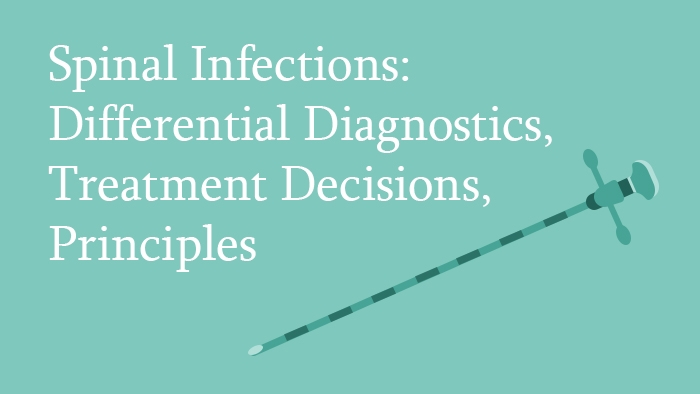Dr Christof Birkenmaier
eccElearning Spine Surgery Education Programme Faculty
Dr Christof Birkenmaier is a highly experienced Spine Surgeon and a key member of the eccElearning Spine Surgery Education Programme faculty. The Spine Surgery Education Programme contains 180 Spine Surgery Lectures, and contains Specialist Certificates and the full Postgraduate Diploma in Spine Surgery. The eccElearning Faculty is made up of over 140 expert spine surgeons and educators. They have collectively supported the development of the world’s first comprehensive, online postgraduate education programme in a medical sub-speciality, spine surgery.
Dr Christof Birkenmaier, MD
- Orthopädische Klinik München, Munich
Contributions of Dr Christof Birkenmaier
Lecture: Spinal Infections: Differential Diagnostics, Treatment Decisions, Principles
In this spine surgery lecture, the principles of the diagnosis and treatment of pyogenic spinal infections are presented. Without a secured diagnosis, the decision for or against surgery as well as for the timing of surgery may rest on soft ground. All types of surgical approaches may be needed. Sterile cultures may point towards tuberculosis, but there are other infections that are hard to identify – suspicion is key. Quality biopsies are very valuable in our experience, even though some literature concludes to the contrary. When screening for infection (especially multifocal), PET-CT followed by MRI are most sensitive. Patients with SEA mostly benefit from rapid surgical decompression. When deciding on whether an “epidural abscess” is indeed drainable, MRI without contrast-enhanced T1-sequences may be misleading. There are currently updated, evidence-based guidelines for the institution of empiric antibiotic therapy in the presence of spondylitis / spondylodiscitis. When using implants, FU imaging / resistance to infection should be considered. It is no longer simply “titanium is best”. There are considerable developments in the implants arena – with regards to implant materials as well as with regards to infection-preventing coatings of standard metallic implants.



